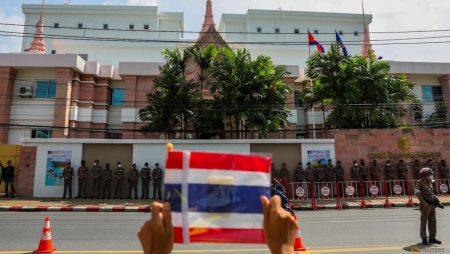The Chinese national table tennis team has taken the drastic step of disbanding all official athlete fan clubs on social media platforms. This decision, a joint effort between the Chinese Table Tennis Association (CTTA) and the national team, aims to address the escalating issue of toxic fandom within the sport. The CTTA cited the detrimental impact of these “fan circles,” highlighting the rampant infighting, personal attacks, and the spread of misinformation that has plagued the table tennis community. They emphasized that such behavior deviates from the spirit of sportsmanship and creates a negative public image, stressing the importance of accountability and respect within the online space. While the CTTA’s statement didn’t specify particular incidents, it followed several public complaints by prominent players regarding overzealous fans and disruptive behavior, particularly during and after the Paris 2024 Olympics.
The disbandment underscores a growing concern over the negative consequences of uncontrolled fan enthusiasm, not just in sports, but also in the entertainment industry. While fan clubs can foster a sense of community and support for athletes, the line between admiration and obsession can become blurred, leading to harmful behaviors. The Chinese table tennis authorities have recognized the need to curb this trend, prioritizing the well-being of their athletes and the overall integrity of the sport. The decision also highlights the broader issue of online harassment and the need for greater regulation and accountability on social media platforms.
Several recent incidents involving Chinese table tennis stars illustrate the challenges posed by overly enthusiastic fans. Wang Chuqin, a rising star in the sport, experienced an uncomfortable encounter with fans at Beijing Capital Airport, where he was mobbed and aggressively photographed. Similarly, Fan Zhendong, another prominent player, shared a video depicting a throng of fans crowding an elevator, attempting to capture images and videos of him. He publicly appealed for greater respect and understanding from fans, emphasizing the importance of appropriate boundaries. These incidents demonstrate the intrusive nature of some fan behavior, highlighting the need for intervention to protect the athletes’ privacy and mental well-being.
Fan Zhendong has been particularly vocal about the negative impact of toxic fan culture, describing it as harmful to both individual athletes and the team’s overall cohesion. He highlighted the detrimental effects of excessive scrutiny and pressure on athletes’ performance and mental health. The CTTA’s decision to disband official fan clubs can be seen as a direct response to these concerns, aiming to create a healthier and more respectful environment for athletes. This move signifies a shift in approach, prioritizing athlete well-being and promoting responsible fan engagement.
The disbandment of fan clubs is not solely a reaction to isolated incidents but reflects a pattern of disruptive behavior by some fans. The CTTA’s statement emphasizes the prevalence of online conflicts, insults, and the spread of false rumors, all of which contribute to a toxic atmosphere. The association has drawn a clear line, stating that supporting an athlete does not grant fans license to engage in harmful behavior. This underscores the need for a cultural shift within the fan community, promoting respectful interaction and responsible online conduct.
The incident involving Sun Yingsha’s loss to Chen Meng at the Paris Olympics further highlights the potential for fan behavior to escalate into negativity. While healthy competition is expected, instances of personal attacks and online harassment following a match demonstrate the darker side of fan enthusiasm. The CTTA’s decision aims to address this issue proactively, creating a more positive and supportive environment for all athletes, regardless of their performance. By disbanding official fan clubs, the association seeks to mitigate the influence of overly zealous fans and promote a more respectful and balanced fan culture within Chinese table tennis. This bold move underscores the commitment to fostering a healthier and more sustainable environment for both athletes and fans alike.










